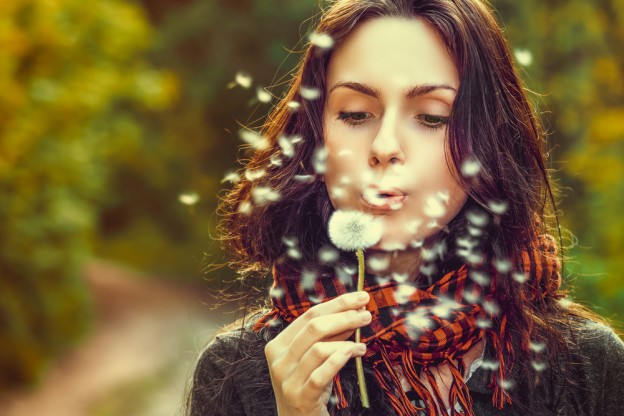When I was a child I used to suffer terribly from allergy. Once the spring time has arrived the bodily most strenuous season of the year has begun for me. Then, my immune system started to go crazy defending itself against any kind of pollen as if they were life-threatening. Although my immune system worked pretty good all throughout the other seasons, for some reason spring time disabled it completely to differ between a harmful and harmless environmental impact. Unfortunately, at that time I didn’t know that the key to battle this allergy was virtually in my lap. Changing my diet would have been the most effective weapon against the dysfunction of my immune system in this season of the year. So, in order to “survive” this time of the year I used to resort to the over-the-counter drugs making me so often tired and shiftless. According to the South Karelia Allergy and Environmental Institute and a study published by the University of Connecticut Health Center, the assumption was also analyzed whether the intake of local honey could decrease the rise of allergy. The results may very probably surprise you!
“Spring is finally here in all its glory — and so are seasonal allergies. This year, experts are warning us in advance: Take shelter and stock up on pharmaceutical antihistamines! But is there a better way to protect against allergies, even as they appear to be getting worse? Nature says yes.
Seasonal Allergies On The Rise
According to the American College of Allergy, Asthma & Immunology(ACAAI), seasonal allergies affect about 60 million people in the United States, and the numbers are growing. If you have allergies, you know the symptoms: excess sneezing; stuffy or runny nose; watery eyes; sinus headaches; and itching of the nose, eyes, throat or roof of the mouth. The scientific term for this condition isallergic rhinitis. Most of us just think of it as misery.
There are many ways to manage these irritating occasional symptoms without resorting to prescription and over-the-counter pharmaceuticals like antihistamines and steroid drugs. These methods only suppress symptoms and don’t get to the root cause. As a result, allergies often come roaring back each year.
To address allergies holistically for long-term relief, there are a number of natural approaches that can help balance immune defenses, reduce the chronic inflammation that aggravates symptoms, clear sinuses and reduce histamine reactions. These include:
- Nutrients and herbs like quercetin, vitamin C, nettle and Bromelain
- Anti-allergy foods like capers, apples, berries, greens and others
- Homeopathic allergy preparations
- Natural detoxification
- Dietary changes that eliminate inflammatory foods like gluten, sugar and trans fats
- Neti pot therapy for nasal congestion and irritation
- Natural stress relief and mind-body balancing with yoga, meditation and tai chi
What About Local Honey?
One home remedy for seasonal allergies is eating local honey. But while many people swear by eating 2 teaspoons to 4 teaspoons per day in divided doses for allergy prevention, the consensus in the medical world is inconclusive. Few studies have been published on the subject; and so far, the results are mixed. The logic behind the idea of using honey to help allergies is similar to the way vaccinations work: Introduce a safe amount of a pathogen to your system to encourage your body to develop immunity to that same pathogen. Flu shots are an example of this type of approach.”
To read the rest of the article, check it out on the original source over at Better Health Publishing.







